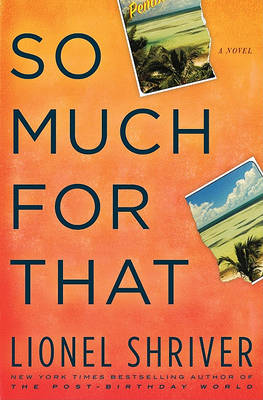Reviewed by ibeforem on
Healthcare and who pays for it is a large part of this story, but it’s also about givers and takers, and friendships, and love. Besides Glynnis’s illness, we also learn about Shep’s best friend Jackson, who has a child, Flicka, with a debilitating genetic disease and Shep’s father, whose fall down the stairs results in him living in a nursing home. Jackson also has a bit of a healthcare crisis of his own, though it is largely of his own doing. Parts of the book are hard to read, especially as Glynnis’s sickness worsens. But it’s not all bad. There are some especially sweet moments, like when Glynnis and Shep’s son would come home from school every day to lay on his mother’s bed with her and hold her hand while they watch TV, or when Glynnis and Flicka commiserate, the only two people in their lives who know how and what they feel. Shriver likes to surprise us, and this book is no exception. Her surprise marks a turning point. It’s like the negative force of the novel dissipates enough to give us a happy ending, of sorts. In the end, Shep is a man we can be proud of. The book does get a little bit preachy at times, but I think it’s possible to put your personal politics aside and enjoy the tale.
Reading updates
- Started reading
- 10 May, 2010: Finished reading
- 10 May, 2010: Reviewed
